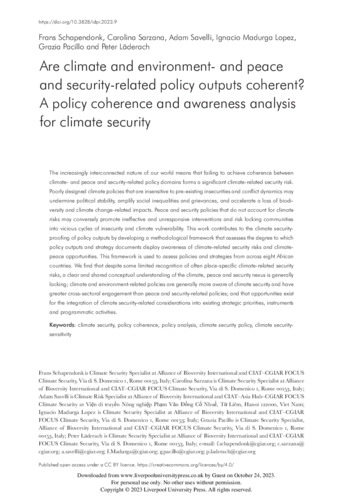Are climate and environment- and peace and security-related policy outputs coherent? A policy coherence and awareness analysis for climate security
The increasingly interconnected nature of our world means that failing to achieve coherence between climate- and peace and security-related policy domains forms a significant climate-related security risk. Poorly designed climate policies that are insensitive to pre-existing insecurities and conflict dynamics may undermine political stability, amplify social inequalities and grievances, and accelerate a loss of biodiversity and climate change-related impacts. Peace and security policies that do not account for climate risks may conversely promote ineffective and unresponsive interventions and risk locking communities into vicious cycles of insecurity and climate vulnerability. This work contributes to the climate security proofing of policy outputs by developing a methodological framework that assesses the degree to which policy outputs and strategy documents display awareness of climate-related security risks and climate peace opportunities. This framework is used to assess policies and strategies from across eight African countries. We find that despite some limited recognition of often place-specific climate-related security risks, a clear and shared conceptual understanding of the climate, peace and security nexus is generally lacking; climate and environment-related policies are generally more aware of climate security and have greater cross-sectoral engagement than peace and security-related policies; and that opportunities exist for the integration of climate security-related considerations into existing strategic priorities, instruments and programmatic activities.

